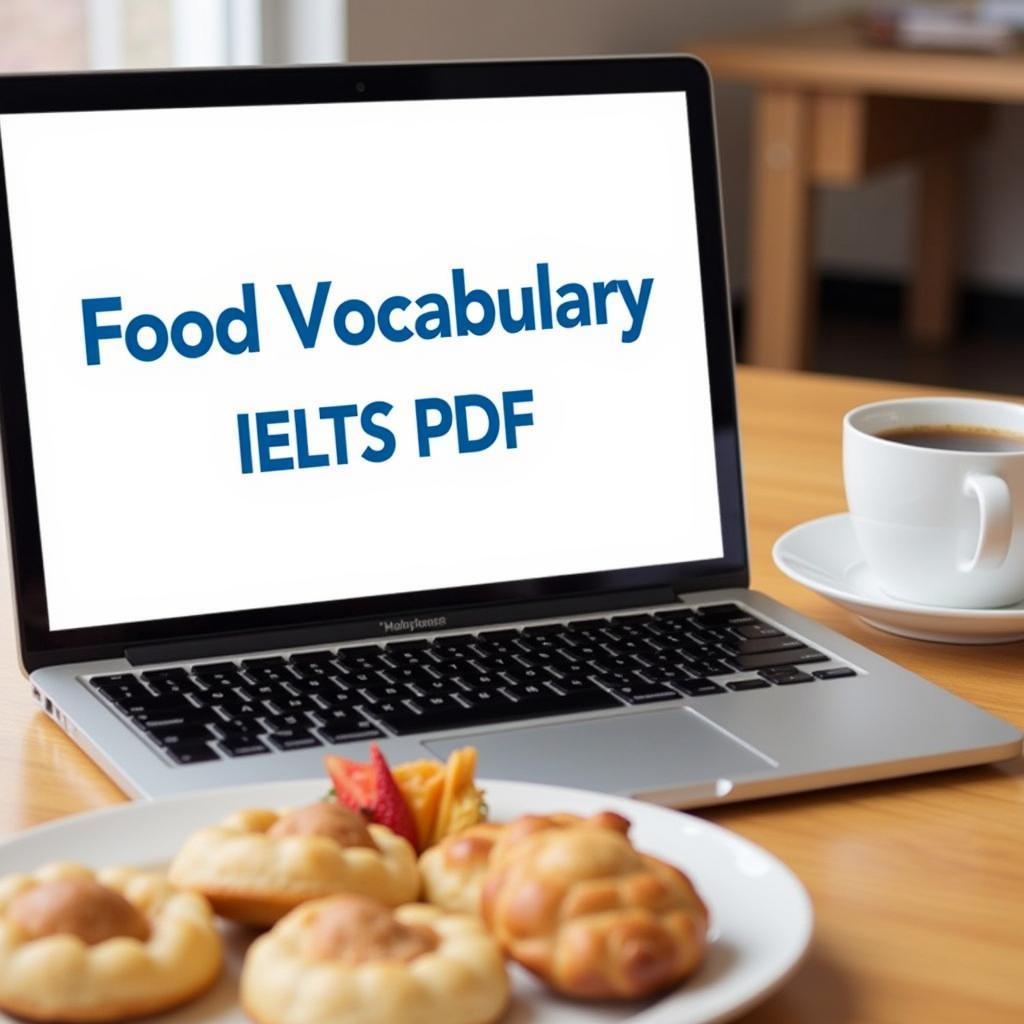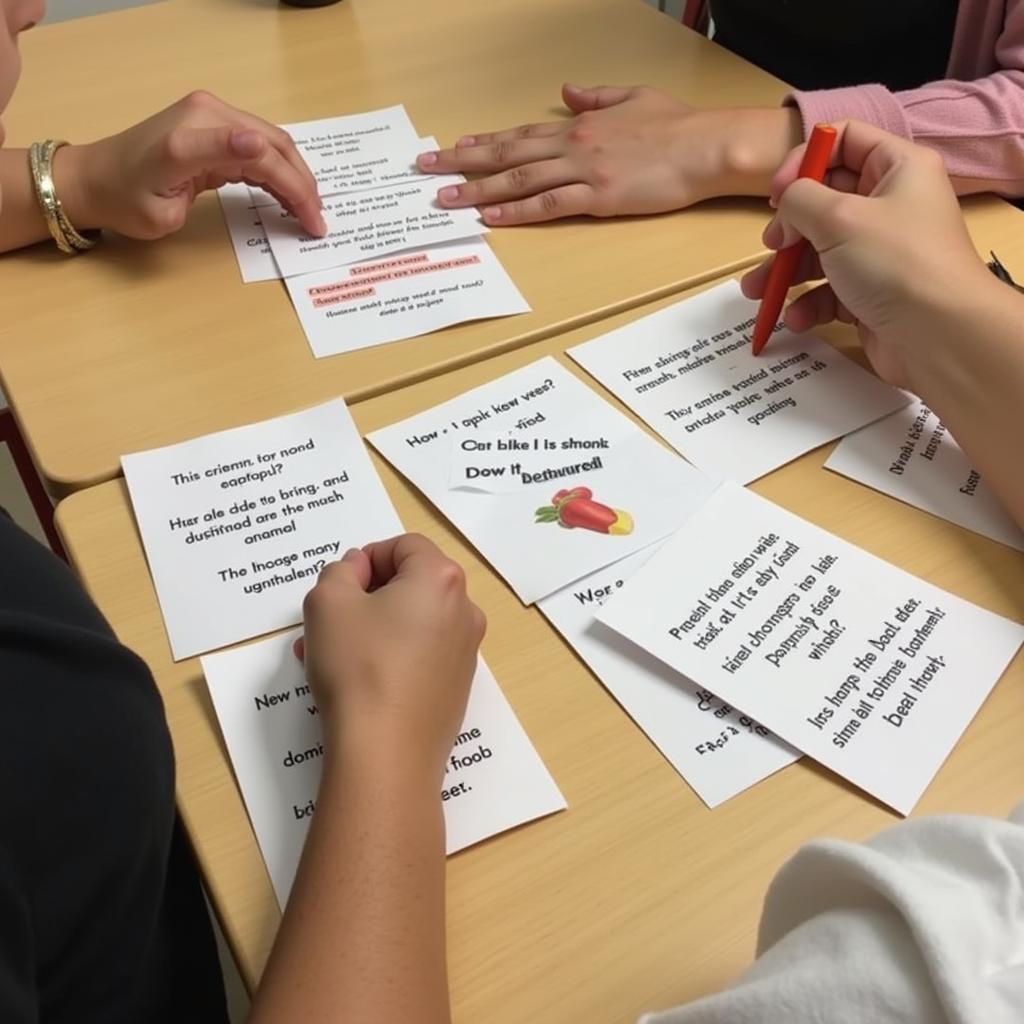Boost your IELTS Speaking score by mastering essential food vocabulary. This comprehensive guide explores various food-related topics, offering valuable insights and resources, including a downloadable PDF, to help you confidently discuss culinary delights in your IELTS Speaking test.
Deliciously Diverse: Exploring Food Vocabulary for IELTS
From describing your favorite dishes to discussing global food trends, a rich vocabulary is crucial for succeeding in the IELTS Speaking test. This section delves into the importance of food-related vocabulary and how it can significantly enhance your performance. A strong grasp of food terms allows you to articulate your thoughts clearly and fluently, impressing the examiner with your nuanced understanding of culinary concepts. Whether you’re discussing the health benefits of a Mediterranean diet or the cultural significance of a traditional dish, the right vocabulary can elevate your responses and demonstrate your proficiency in English.
Why Food Vocabulary Matters in the IELTS Speaking Test
Food is a universal topic, and it often appears in the IELTS Speaking test. You might be asked about your favorite meals, cooking habits, or even food-related cultural traditions. Being prepared with a diverse range of food vocabulary will not only help you answer these questions fluently but also allow you to express yourself more precisely and effectively. It showcases your ability to navigate conversations about everyday topics with confidence and clarity.
 IELTS Speaking Test Food Vocabulary
IELTS Speaking Test Food Vocabulary
Key Food Vocabulary Categories for IELTS
To effectively prepare for the IELTS Speaking test, it’s helpful to categorize food vocabulary into different areas. This allows for targeted learning and ensures you are well-equipped to discuss various aspects of food. Some essential categories include:
- Ingredients: Learn names of common and less common ingredients, from herbs and spices to different types of meat and vegetables.
- Cooking Methods: Familiarize yourself with terms like “bake,” “fry,” “grill,” “roast,” and “steam,” along with more specific techniques like “sauté” and “braise.”
- Flavors and Textures: Expand your vocabulary to describe flavors (e.g., savory, sweet, tangy, spicy) and textures (e.g., crispy, creamy, chewy, crunchy).
- Dishes and Cuisines: Learn the names of various dishes from different cuisines around the world. This will allow you to discuss your culinary experiences and preferences in a more engaging manner.
- Dining Experiences: Be prepared to discuss different dining settings, from casual eateries to fine dining restaurants, and use vocabulary related to ordering food, table manners, and restaurant service.
Download Your Free Food Vocabulary IELTS PDF
To help you expand your food vocabulary, we’ve compiled a comprehensive PDF guide that you can download for free. This resource includes lists of essential terms, example sentences, and practice activities to reinforce your learning.
 Free Food Vocabulary IELTS PDF Download
Free Food Vocabulary IELTS PDF Download
Using Food Vocabulary in IELTS Speaking: Practical Tips
Knowing the vocabulary is one thing; using it effectively is another. Here are some practical tips to help you integrate food vocabulary seamlessly into your IELTS Speaking responses:
- Practice Regularly: Consistent practice is key. Use the PDF guide to create flashcards, practice speaking with a partner, and record yourself to identify areas for improvement.
- Use Contextualized Examples: Instead of simply listing words, provide specific examples of how you would use them in a sentence. This demonstrates a deeper understanding of the vocabulary.
- Focus on Fluency and Pronunciation: While vocabulary is important, don’t neglect fluency and pronunciation. Practice speaking naturally and clearly.
“Fluency and accurate pronunciation are just as crucial as vocabulary. Practice speaking about food topics regularly to improve your overall performance.” – Dr. Emily Carter, Language Acquisition Specialist.
Common IELTS Speaking Questions About Food
Familiarizing yourself with common food-related questions can help you prepare effective responses. Here are a few examples:
- What is your favorite dish and why?
- What are some traditional foods from your country?
- Do you prefer cooking at home or eating out?
- What are the benefits of eating healthy food?
 IELTS Speaking Practice Questions: Food
IELTS Speaking Practice Questions: Food
Conclusion: Savor Success with Enhanced Food Vocabulary
Mastering food vocabulary is a recipe for success in the IELTS Speaking test. By utilizing the resources and tips provided in this guide, including the downloadable PDF, you can confidently navigate food-related topics and achieve your desired score. Remember, practice makes perfect, so start expanding your culinary lexicon today!
FAQ
- Where can I find more IELTS Speaking resources?
- How can I improve my pronunciation of food-related terms?
- What are some common mistakes to avoid when discussing food in the IELTS Speaking test?
- How can I incorporate more complex vocabulary into my responses?
- What are some other important topics to study for the IELTS Speaking test?
Scenarios
Scenario 1: The examiner asks you to describe a memorable meal you had.
Scenario 2: You are asked to compare and contrast different types of cuisine.
Scenario 3: The examiner asks you about the role of food in your culture.
For more IELTS preparation tips and resources, check out our other blog posts on IELTS vocabulary and grammar.
Need further assistance? Contact us at Phone: 02437655121, Email: minacones@gmail.com or visit us at 3PGH+8R9, ĐT70A, thôn Trung, Bắc Từ Liêm, Hà Nội, Việt Nam. Our customer service team is available 24/7.